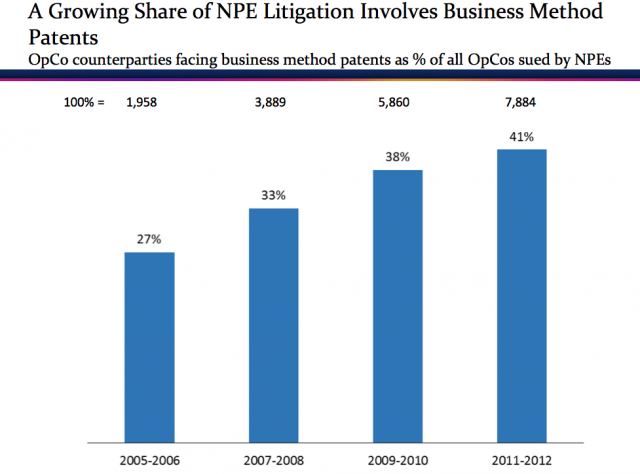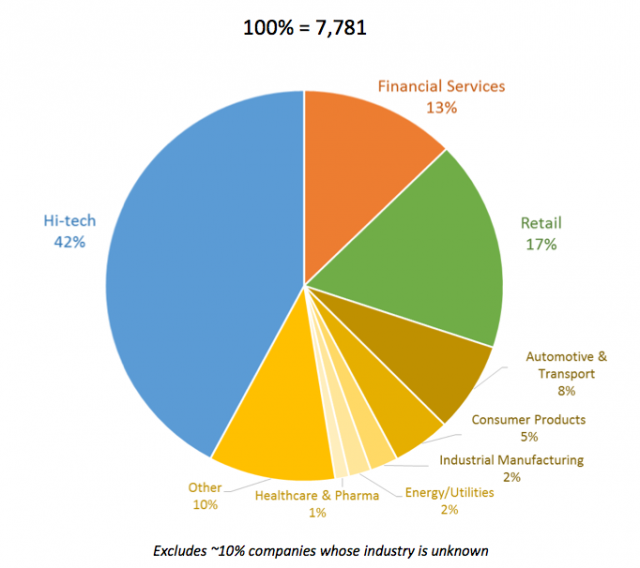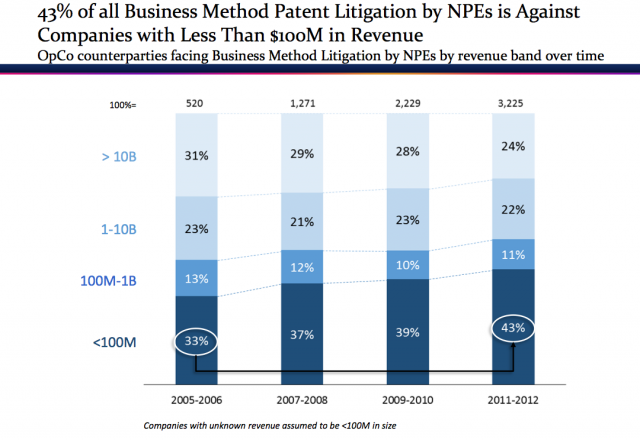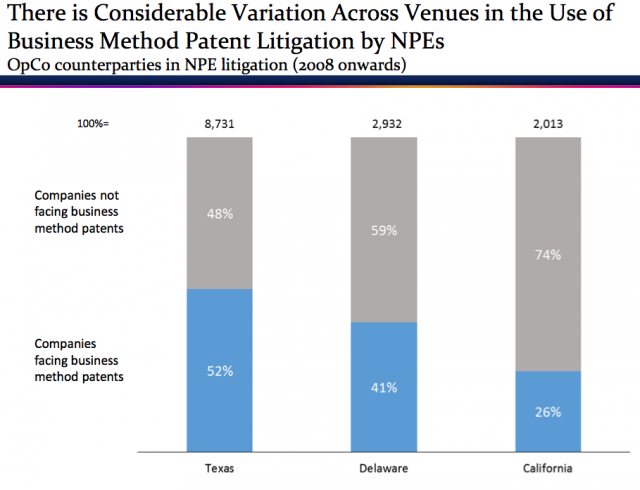Patenting everyday life: “Business method” lawsuits are growing fast
41 percent of troll-spawned suits now involve patents on how to run your business.

Increasingly, the very way a business operates can be the subject of a patent lawsuit.
Using a gift card? Finding real estate online? Automatic online bidding? All have been patented, and all by so-called "patent trolls" with no business other than suing over their patents.
Defenders of current patent law tend to portray these situations as outliers. But trolls asserting patents on business practices is increasingly becoming the norm. That's the finding of a new study (PDF) on business method patents published today by PatentFreedom, a defense-oriented patent analytics company. The study focused only on business method patents asserted by trolls, which PatentFreedom more diplomatically calls non-practicing entities, or NPEs.
To conduct the study, PatentFreedom first had to sift through the database it maintains of more than 3,700 patents that have been litigated by NPEs. It isolated a set of 1,990 patents that had some type of indicator that they might be business method patents—for example, fitting into certain "classes" in the US Patent Office's classification system. Then it did a manual review of those patents to find 954 patents that fit the definition of business method patents—that is, they claim methods used in "the practice, administration, or management of an enterprise, the processing of financial data, or the determination of the charge for goods and services."
The study produced several notable findings.
First, lawsuits over business method patents are becoming more common. Such lawsuits are growing in general, and they're growing when measured as a proportion of all NPE litigation. The number of companies facing business method patent lawsuits brought by NPEs has grown at 28 percent per year since 2004. While NPE lawsuits in general have grown during that time, business method lawsuits have grown faster. The share of NPE lawsuits that involve business method patents went from 27 percent in 2005-06 to 41 percent in 2011-12.

PatentFreedom 2013

PatentFreedom

PatentFreedom

PatentFreedom
One thing that has always struck me about PatentFreedom is the company's elegant and sensible definition of what a "non-practicing entity," or troll, really is. The company's definition of an NPE is "any entity that earns, or plans to earn, the majority of its revenue from enforcing patents." That's really the only definition that makes sense. It emphasizes the true innovation of trolling, which is the invulnerability to counter-suit. Emphasizing whether or not an inventor is involved, as some have, has always seemed like an irrelevant distraction. The PatentFreedom definition dispenses with other distracting arguments, like the idea that universities are NPEs. None of that is to say that universities or operating companies can't abuse the patent system in other ways, as they certainly can.
"Our definition actually includes my great-grandfather, who was an inventor," said PatentFreedom President Chris Reohr, who spoke with Ars about the results of the study. "One of his patents clearly is a business method patent. I have no objection to someone who invests time and money and takes some risk trying to use a patent. I think it's the nature of the conduct which can sometimes be reprehensible."
Reohr is steadfastly neutral on the patent debate, never using the word "troll" and seeing his role as an information provider to PatentFreedom clients. However, the finding that business method patents are increasingly being used to attack small companies was striking to him. He acknowledged that the increase in litigation against small companies "really gets me angry sometimes."
If one excludes NPE litigation, patent litigation would have been essentially flat since 2004, notes Reohr. And now there does seem to be a shift in exposure to business method patents, he said.



No comments:
Post a Comment